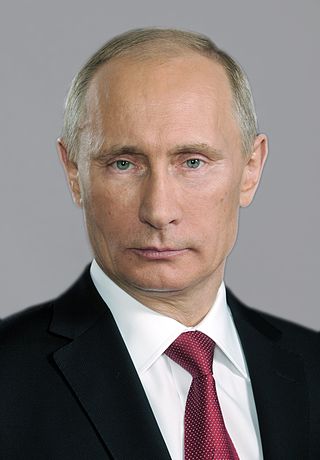BBG Watch Commentary
Radio Free Europe / Radio Liberty (RFE/RL) journalists are capable of excellent reporting. “In Forgotten Karelian Village, Frustration With Moscow Runs High” | RFE/RL is a good example of accurate and unique news reporting by RFE/RL that no one else can offer.
The report accurately presents the situation on the ground. Overall, it is an excellent report. It does offer a nuanced and balanced picture.
But good reporting is not always enough. RFE/RL always had a reputation of being able to analyze propaganda issues. It was RFE/RL’s bread and butter during the Cold War. It had executives in charge and experts who could spot Soviet propaganda and popular misconceptions a mile away and explain them, especially to an English speaking audience, but also to the Russians.
 Someone at RFE/RL should have pointed out that the appeal of an unhappy Karelian citizen to President Putin is a deeply-rooted popular Russian self-deception. This kind of self-deception among ordinary citizens has been carefully nurtured and reinforced by Russian state propaganda for centuries. Its purpose in the past was to convince the population of there being a “good Tsar” who is mislead by his bad advisors and administrators.
Someone at RFE/RL should have pointed out that the appeal of an unhappy Karelian citizen to President Putin is a deeply-rooted popular Russian self-deception. This kind of self-deception among ordinary citizens has been carefully nurtured and reinforced by Russian state propaganda for centuries. Its purpose in the past was to convince the population of there being a “good Tsar” who is mislead by his bad advisors and administrators.
Soviet propaganda glorified good and magnanimous Stalin. If anything went wrong, it was because Stalin was kept in the dark by bad officials. If only Stalin knew about their misdeeds, I would not be in in prison, many of his victims were convinced of that and kept writing letters to the dictator proclaiming their innocence. They were victims not only of Stalin’s tyrannical rule, but also of his propaganda. If only Vladimir Vladimirovich Putin knew how bad the living conditions in Karelia are and how corrupt local officials are enriching themselves at the expense of ordinary citizens, he would do something about it.
RFE/RL missed a chance to explain how such a propaganda myth is created to absolve the top leader of responsibility and obscure the suppression of vigorous free media which otherwise would have been able to expose corruption no matter how high within the Russian government. The RFE/RL report alludes to it, but it fails to explore the issue of self-deception as a result of propaganda and state control of the media as much as it deserves to be presented in such a report.
We have noticed that such lapses, a minor one in this case, now happen from time to time at RFE/RL which lacks permanent leadership. We don’t think this would have happened during the Cold War when RFE/RL had strong leaders and its own highly-engaged oversight board as opposed to the current part-time Broadcasting Board of Governors and its bureaucracy in Washington which also lacks engaged experts.
SEE: Is this Russian RT, SPUTNIK or something else?, BBG Watch, December 19, 2015
We’re not suggesting beating the audience over the head with heavy analysis, but successful propaganda by the Kremlin ought to be at least acknowledged and briefly explained, if not fully exposed, when individuals interviewed by RFE/RL seem to fall for it.
When it comes to President Putin, there seems to be a pull-back these days at RFE/RL, and one wonders why that is the case.
If the appeal to President Putin was spontaneously offered, RFE/RL should have by all means reported it. But RFE/RL should have also pointed out the obvious problems with this line of reasoning and its state propaganda roots in Tsarist Russia, in the Soviet Union, and in Russia under President Putin.
